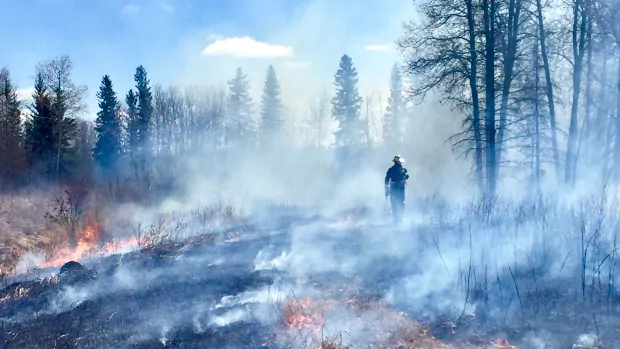Alberta to announce new measures to curb human-caused wildfires during pandemic

New measures intended to reduce the risk of human-caused wildfires during the COVID-19 pandemic are expected to be imposed by the Alberta government.
Agriculture and Forestry Minister Devin Dreeshen will hold a news conference at 12 p.m. Tuesday to “provide an update on next steps to reduce the risk.”
Dreeshen will be accompanied by Shane Schreiber, the managing director of the Alberta Emergency Management Agency and Patrick Loewen, director of wildfire prevention for Alberta Wildfire.
You can watch the announcement live here.
Wildfire season runs from March 1 to Oct. 31. As of Tuesday, six fires were burning in Alberta, all considered under control.
For many years, humans have been the main cause of wildfires in Alberta.
Last fire season, according to provincial figures, 989 wildfires burned more than 883,00 hectares of Alberta forest. More than 70 per cent of those wildfires were human-caused, such as an out-of-control campfire or spark from an off-highway vehicle.
The McMillan wildfire, which scorched more than 273,000 hectares and threatened communities northeast of Slave Lake in May 2019, was the result of arson.
A dual threat
Tuesday’s announcement comes as Alberta grapples with how to cope simultaneously with two public health threats: the COVID-19 pandemic and the impending wildfire season.
From staffing the front lines to potential evacuations, the health crisis has complicated almost every aspect of planning for the wildfire season.
In previous years, at the peak of wildfire season, firefighters from other provinces and jurisdictions have flown in to help crews in Alberta. That kind of response may be complicated this spring and summer by travel restrictions and flight cancellations.
The pandemic has also raised questions about ensuring the health of firefighters, who often work and live in close quarters. As more Albertans fall ill, it could impact the number of healthy firefighters available to work.
The prospect of cramming evacuees into emergency shelters has also raised public health concerns.



